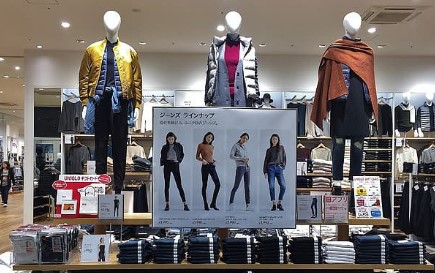Mumbai: The second wave of coronavirus infections reported from various pockets of the country has come as a “strong headwind” to fashion retailers, and is expected to delay the recovery back to pre-COVID-19 levels till FY23, domestic rating agency ICRA has said.
The industry is set to show a revenue growth of 23-25 per cent on a low base in 2021-22, but that will not be sufficient to get the business performance back to the pre-COVID-19 levels, ICRA said in a report.
The rating agency said the industry was recovering well till the second wave hit and sales had touched over 70 per cent of pre-COVID-19 levels by the December quarter of 2020. “A sharp spike in the number of new COVID-19 cases since March 2021 throws up strong headwinds for the sector.”
Its Sector Head Sakshi Suneja said industry players adopted to several cost-saving measures by fashion retailers, including rental negotiations, salary and overheads rationalisation in FY21 to protect the businesses. They are expected to continue the same in FY22 also pending a revival in discretionary demand.
“This is expected to support the operating profit margins (OPM) at around 4.1 per cent in FY22, though these will remain lower by around 2.50 per cent from FY20 levels,” she said.
Credit profiles of retailers will improve in 2021-22 as compared to the year-ago period courtesy de-leveraging in balance sheets after capital infusions in FY21, she said. The credit profiles will remain weaker than the pre-COVID-19 levels, Suneja added.
“Expectations of increasing and widespread availability of vaccines in the coming months will drive recovery of the sector’s revenues and profitability to pre-COVID-19 levels in FY23,” its co-group Head Priyesh Ruparelia said.
The agency said the fashion retailers industry is set to invest Rs 2,400 crore in capital expenditure in 2021-22, largely on store expansions that got deferred as a result of the pandemic, and added that attractive rentals are a pull.
The pandemic has also spurred the adoption of online retailing in India, with most of the retailers reporting more than 50 per cent jump in online sales in the first nine months of the fiscal albeit on a low base, leading to increased proportion of online sales within the overall mix, Ruparelia said.
In contrast to the fashion retailers, the food and grocery retailers fared relatively well during the pandemic and have reverted to pre-COVID-19 level sales and profits in the third quarter of 2020-21 itself, the agency said.
While the segment is yet to see a recovery in footfalls to pre-COVID-19 levels, a higher transaction size is adequately compensating for the same, the agency said. The conversion rate and spend per visit improved in H2FY21 as consumers undertook need-based buying to avoid repeat visits, it added.
The food and grocery retailers are set to deliver a revenue growth of 8-10 per cent in 2021-22 as this segment is essential and will witness limited impact on sales due to the rising infections, the agency said.
However, their operations in the first quarter of 2021-22 remain susceptible to restrictions on store operating hours as well as local lockdowns, which restrict the sale of general merchandise, it said. It also warned that continuations of lockdowns after July is a downside risk.
PTI
